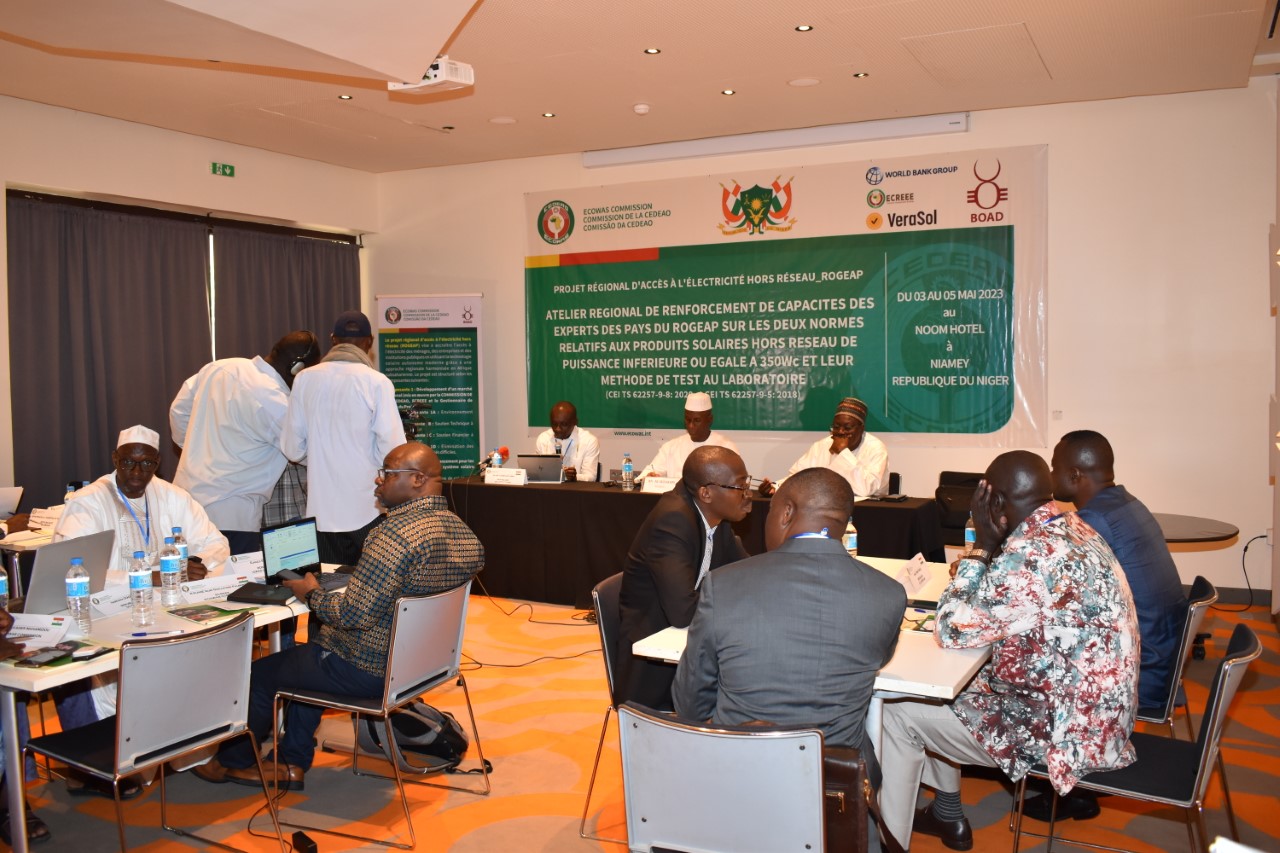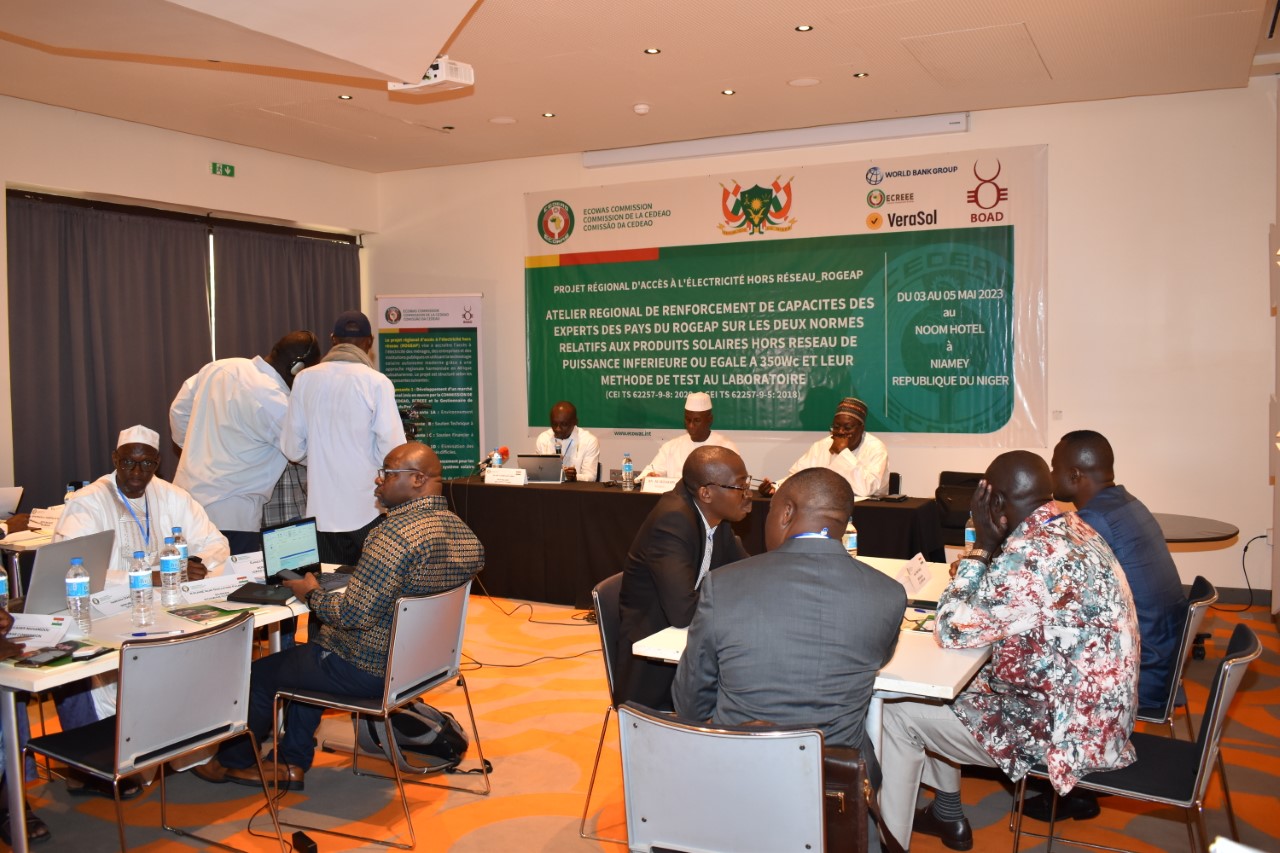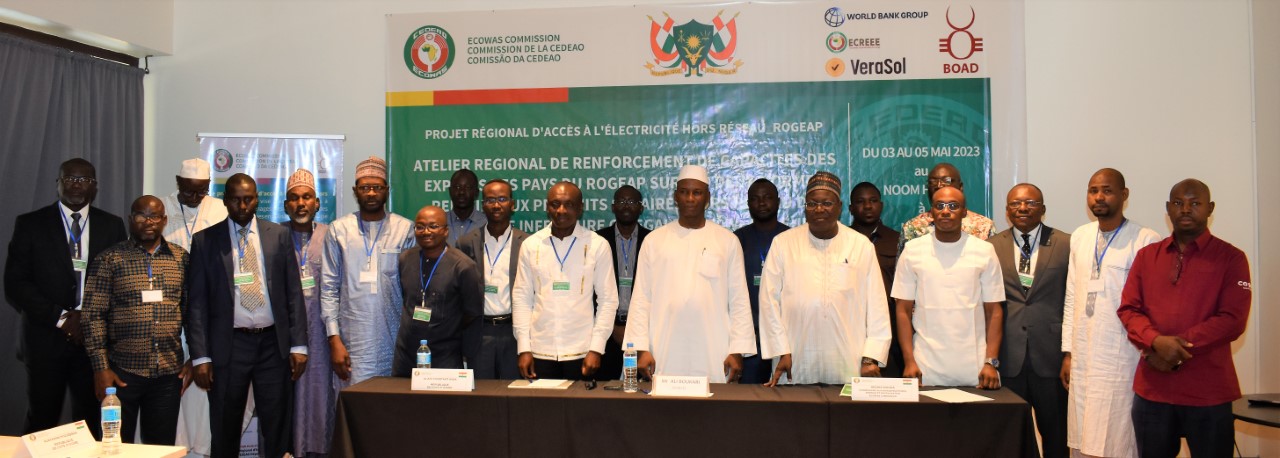Capacity building of ECOWAS Member States towards operationalising the implementation and monitoring mechanisms of the Digital Transformation Strategy for Africa 2020-2030.
04 May, 2023Experts from Member States of the Economic Community of West African States (ECOWAS) involved in the process of achieving a Digital Africa were sensitized on the Digital Transformation Strategy (DTS) for Africa, and the Monitoring, Evaluation and Learning Framework (MELF) 2022-2030 from 26-28 April 2023 in Abuja, Nigeria. The MELF provides a comprehensive and structured approach for monitoring progress towards the achievement of the DTS objectives. The workshop was organised in collaboration with the African Union Commission with financial support from GIZ.
Addressing the opening session of the workshop, Mrs Mihret Woodmatas, Senior Information and Communication Technology (ICT) Expert of the African Union Commission (AUC), recalled that the DTS 2020-2030 aims to create an integrated and inclusive digital society and economy in Africa, driven by digital technologies and innovation to promote continental integration, inclusive broad-based economic growth, boost job creation, bridge the digital divide and eradicate poverty.
She was followed by Mrs Marie Ndé Sène Ahouantchédé, who spoke on behalf of Mr Sédiko Douka, Commissioner for Infrastructure, Energy and Digitalisation. Mrs Ndé Sène Ahouantchédé reiterated the commitment of the ECOWAS Commission to serve as an intermediary and to provide unfailing support at the regional level for any action aimed at coordinating digital transformation in line with the region’s ambitions for socio-economic development and integration. She also recalled the coordination dynamics of the digital transformation launched by ECOWAS and manifested through the organisation of the first Experts’ Forum on e-Governance on 28 and 1 March, and a workshop on the Internet of Things and Emerging Disruptive Technologies held on 29 and 30 March 2023, to leverage the potential of digital technology and thus help tackle the challenges and meet the ambitions of the region, including the 4×4 Strategic Objectives 2022-2026 of the ECOWAS Management.
During this workshop, which reflects the deep alignment and commitment of ECOWAS and AU institutions to Africa’s digital transformation, participants were trained on the MELF framework and associated tools for monitoring the performance and impact of the implementation of the DTS.
The detailed data collection plan to measure progress towards the DTS objectives, including baseline and target values, implementation periods, data sources, data collection methods, frequency of data collection and officials responsible for each indicator, was presented and discussed.
Finally, in order to concretely demonstrate how innovation using digital technology can help address the persistent problems facing Africa, participants also visited the TD4PAI (Technology Development for Poverty Alleviation Initiative) IoT Innovation Hub to view prototype solutions tailored to the realities of the continent.
TD4PAI provides mentorship and a platform to support IoT developers, equipping them with a set of hardware and software components that can be easily merged to produce prototype IoT applications.





















